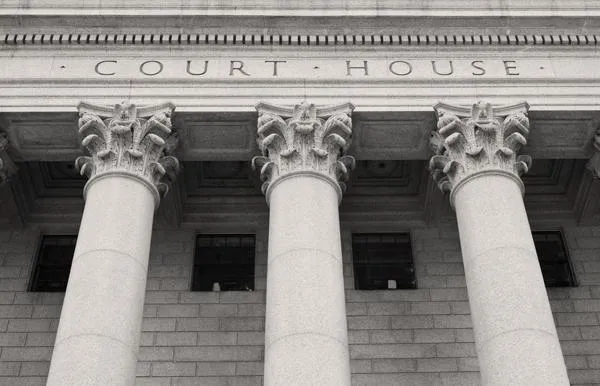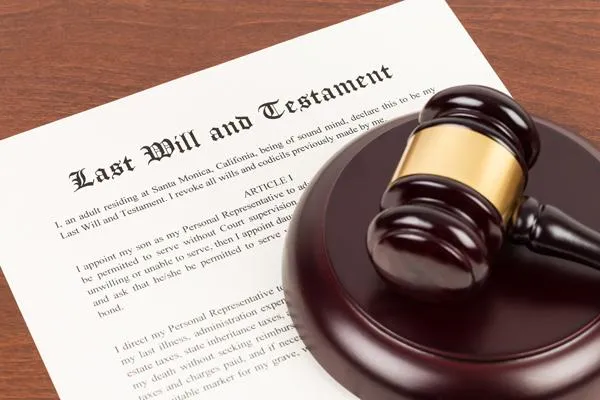If you recently have had a loved one passed away, then you may be wondering what steps come next. Depending on how the deceased person prepared their estate, you may have been informed that the estate must go through probate, and you may even have been advised by friends and family to hire a probate attorney. However, if you are unfamiliar with the probate process, you may be uncertain what probate is, what it entails, and whether or not you should consult an attorney. To help you make an informed decision as you and your family cope during this difficult time, here is an overview of everything that you need to know about the probate process and hiring a probate attorney.
What Is Probate?

So the first question that you likely have is "what exactly is probate?" Probate is a legal process that takes place after someone dies in order to make sure that property and possessions are given to the deceased's rightful heirs, and it ensures that any taxes or debts that the deceased person owed are paid in full by the estate. Each state has different laws dictating how a deceased person's assets are to be handled and distributed, and the probate process can then vary greatly from state to state. However, the probate process will generally involve paperwork and even court appearances, and court fees, lawyer's fees, and any debts owed are then paid by the estate before the estate's assets are distributed to beneficiaries.
Generally, if there is a will the estate's property will be distributed in accordance with the will once it has been authenticated by the court. It is the judge's job to ensure that the will is authentic, and if it is, that the directions in the will are carried out properly. If there is no will, it is the judge's job to ensure that assets are distributed in accordance with state laws.
When Is Probate Necessary?
Unfortunately, while probate can be a long, stressful, and potentially costly process for beneficiaries, probate is often necessary to ensure that an estate is handled and distributed properly even if there is a clear will in place, as probate court will still need to ensure that the will is valid and is adhered to. Of course, if proper estate planning steps were taken, this can help to streamline the probate process and reduce the financial burden that probate can place on the estate. For instance, if the deceased created a living trust, then any assets that were placed in the trust do not have to go through probate, as they are technically owned by the trust. Assets that are jointly owned, or are listed as POD (Payable on Death), can also bypass the probate process and go straight to the beneficiary.
What Is a Probate Attorney?
So what exactly is a probate attorney, and how do they differ from other lawyers? A probate attorney is a state-licensed lawyer who works with and advises executors and beneficiaries of an estate on how to settle the affairs of a deceased person. They will generally work with a beneficiary throughout the entire probate process to ensure that this process is handled properly and that the best interests of the beneficiary are looked after if the deceased individual's will is challenged.
If you decide to work with an attorney when handling the probate process after the death of a loved one, it is critical that you work with an experienced probate attorney. A probate attorney specializes in the creation, handling, and execution of estates, and they will have the knowledge and experience required to walk you through the complicated probate process and support you during this difficult time. Having handled many probate cases, they will know what needs to be done by what deadlines, ensuring that the probate process goes as smoothly as possible from start to finish.
What Does a Probate Attorney Do?
In addition to helping beneficiaries with the probate process, probate attorneys can also help individuals to plan their estate by preparing a will or a living trust before they die. If you find that you worked well with an attorney when handling the probate process after the death of a loved one, then you may want to consider also hiring them to help you plan your estate. As you may have already learned, the probate process can be stressful and expensive for the deceased individual's loved ones. By taking the time now to plan your estate and make plans for when you are gone, you can help to reduce the burden that can be placed on your loved ones after your death.
Do I Need to Hire a Probate Attorney?
Now that you know more about the probate process and what a probate attorney does, you may be wondering how you will know whether or not you need to hire a probate attorney. While it is often advisable to consult an attorney if the estate of a deceased loved one is facing probate, the fact is that some probate cases are more complicated than others. Depending on the unique circumstances surrounding your case, you may be able to navigate the probate process on your own. However, if you encounter certain problems as you start the probate process, then you will likely need to consult an attorney. It is advisable that you work with a probate attorney if:

The Deceased Didn't Have an Estate Plan
Hopefully, if the deceased did the proper estate planning then many of their assets may be able to avoid probate altogether, making the process simple. In this case, you likely will not need to hire a probate lawyer. For instance, if they had a living trust, the majority of their assets will likely be able to be passed on to beneficiaries without going through probate. However, if the deceased did not have an estate plan, then you will likely need to work with an attorney who can help you to handle the complex probate process. Even if the deceased had a will, an attorney can help you to interpret the will and make sure that it is adhered to.
Beneficiaries Aren't Getting Along
Perhaps the most important reason to contact an attorney is if there is conflict between heirs over the terms of the will and the distribution of the estate. Unfortunately, emotions can run high after the death of a loved one, and tensions may flair leading to disputes between beneficiaries who may think that they are not getting their fair share. If a family member is threatening to sue over the estate, you should consult an attorney as soon as possible. In all likelihood, an experienced attorney may be able to help mediate the situation and bring peace without a court battle. If not, they can help to represent you and look out for your interests in the event that there is a probate lawsuit.
There Is a Family Business Involved
When there is a clearly defined will or estate plan and all family members are getting along, it may be simple to navigate probate without an attorney if the deceased only had common assets like a house, cars, and a bank account. However, things get much more complicated when the estate includes a business or commercial property, and it is often necessary to consult an attorney in this scenario. If a business needs to be appraised, sold, or transferred, or if there is a debate over who will maintain control of a family business, then it is critical that you bring in an experienced estate attorney to help you navigate this complicated process.
The Probate Process Is Complicated in Your State
As we previously mentioned the probate process can vary widely from state to state, and depending on where you live it may be particularly critical that you consult a probate attorney. Some states have begun to adopt the Uniform Probate Code (UPC), which is a set of laws designed to streamline the probate process. In these states, probate is often conducted fairly simply with minimal court supervision. However, if you happen to live in a state that has not adopted the UPC or created its own simplified probate procedures, then probate may be a long complicated process for you, and it would be advisable that you work with a probate attorney.
The Estate Doesn't Have Enough Money to Pay Outstanding Debts
Ideally, after a loved one passes there will be enough money in their estate to pay for funeral costs, medical expenses, and their final debts while leaving some money for beneficiaries. However, if your initial investigation of your loved one's finances reveals that there may not be enough money left in the estate to pay for all of their remaining debts, then it is critical that you consult an attorney as soon as possible. While creditors may immediately start coming after you for money, it is critical that you do not pay any bills until you speak with an attorney, as state law will mandate in which order creditors get paid out from an insolvent estate.
Learn More About Hiring a Probate Attorney
If you have recently lost a loved one and their estate is set to go through probate, you may want to consider consulting an attorney. Probate is often a lengthy process that can be stressful to handle on your own, so partnering with an attorney will ensure that you have someone by your side to walk you through this difficult process. Feel free to contact us to learn more about the probate process as well as to find out if you should consider hiring a probate attorney.
For more information please request a copy of our Legal Services Schedule (PDF format).
![]()